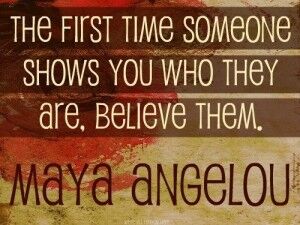Ever tried to give your direct report some feedback and have them resist?
Ever wanted your team to offer proactive solutions to a challenge and been faced with nothing but negativity?
Ever wished your team wanted more from their jobs than just a paycheck for minimal work?
You have an uncoachable team!
When we work with clients as Executive Coaches, one of the things we need to determine up front is the level of coachability of the client. That’s an odd term that spellcheck doesn’t like, but it means just what it says: the amount to which a client is able to accept, welcome and embrace coaching.
Coaching is a generative, creative process driven by the client. This means that it’s the client’s job to create solutions, it’s the client’s job to manage the process and it’s the client’s job to seek feedback, resources and training from the coach, or wherever else they need to get it. It’s the coach’s job to reflect the process to the client, so they can see what choices they’re making (“You say you want more time at home, but I notice you continually take on more projects at work. What options do you have to create all the things you want?”)
In your roles as supervisor, one of the many hats you wear is “Coach.”
Many employees feel like their job is to do what their boss says, but not to offer creative options or do their own thinking. Clearly this is only partly true. Yes, everyone must follow the direction given by their bosses (no secretly ordering from the supplier your boss turned down for legal reasons). But as bosses, we all want our staffs to be continually learning and growing. Their roles are proactive ones, not simply one-directional implementers. You are looking for your team to be coachable.
Coachable employees:
- Seek feedback
- Look to find solutions
- Hold themselves accountable
- Seek out what they need: information, resources, training
- Make requests
- Deliver their targets or communicate when they won’t/can’t/need help to do so
- Do not take it personally if you choose not to follow their advice
- Have open conversations with you and their colleagues
- Set goals and meet them
- Learn
- Continually seek growth opportunities
- Have a good attitude in general and manage their moods if otherwise
- Treat themselves and others with respect
In your role as supervisor, if your employees are not delivering, not accepting your feedback, are waiting for you to give them all the answers and are not taking responsibility/ownership in general, they are NOT COACHABLE.
The thing with uncoachable people, is that you cannot coach them. I know this seems obvious – kind of by definition – but despite how obvious it seems, many of us still try to do it. We still try to get our direct reports to improve in the area that has been on their performance review for three years that they’ve taken no ground in and expressed no interest in improving other than their nodding agreement during the actual performance review meeting once a year. We still try to give them growth opportunities when we know they won’t get along with the new team, because we want them to succeed. But the fact is, we cannot want things for our employees more than they want it for themselves. You cannot coach an uncoachable person.
Of course, once you realize this you have two options:
- Stop trying to coach them and accept them doing things as they do now
- Find a replacement who is coachable
Just because someone is uncoachable now doesn’t mean they’ll be that way forever, but it’s futile to try to push someone into coachability. Trust me as a coach when I say we’ve all tried it, and it doesn’t work.
So take a step back. With as objective an eye as you can muster, ask yourself if your team is truly coachable. Then, once you decide… what will you do about it?
If you’d like us to send you a document with more of a definition of coachability, please email us: info@ardencoaching.com with “Coachability” in the subject line. Or, Contact us.

